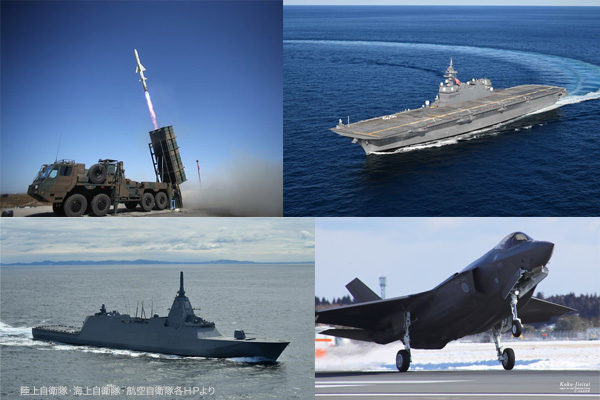On February 28, a U.S.-Ukraine summit meeting in Washington broke down with an altercation, leading the planned signing of an agreement on Ukrainian mineral resources and a joint press conference to be canceled. The incident seriously affected movement towards Ukraine ceasefire and deepened the rift between the United States and Europe, as indicated by British, French, and German leaders’ comments defending Ukraine.
Trump focuses on north and south rather than east and west
During the meeting, Ukrainian President Volodymyr Zelensky repeatedly expressed his concern about the lack of security guarantee after the war and asked U.S. President Donald Trump not to compromise with “the murderer (Russian President Vladimir Putin).” But Trump accused Zelensky of being disrespectful to the U.S., which continued to provide robust support for Ukraine, emphasizing the importance of stopping the war from the standpoints of both Russia and Ukraine.
Trump apparently believes that the U.S. must join hands with Russia in order to confront China as the only U.S. competitor. Since last year or so, there has been a strong sense of crisis among Americans, including both Republicans and Democrats in the Congress, that the U.S. will not be able to defeat China if a war breaks out between the two countries in the near future. The Trump administration may be considering a strategy to win over Russia and prevent it from cooperating with China to threaten the U.S.
The U.S.’ concentration on confronting China is favorable also for Japan’s national security. But Trump prioritizes his country’s interests over the rule of law to the extent that Friedrich Merz, Germany’s probable next chancellor, advises Trump not to confuse the aggressor with the victim.
At his meeting with Zelensky, Trump questioned why the U.S. has to make such a big contribution to the defense of Ukraine despite being separated by an ocean. We may have to recognize that the U.S. is no longer a country that once provided assistance to faraway countries to the east and the west beyond the Atlantic and Pacific Oceans. The threats of Chinese and Russian nuclear missiles coming from the north over the Arctic Ocean and Greenland, illegal immigrants crossing the border from the south, and the security of Panama Canal to the south, which collectively could be called north and south issues, may be now more important for the U.S. than problems in the east and the west.
Japan must rethink its national strategy
In the face of this reality, Japan needs to rethink its national strategy. First of all, Japan should strive to build a defense force that is more independent than the current defense force that thoroughly relies on the U.S. Second, Japan cannot stand the offensive power of China, Russia, and North Korea without help from the U.S. Therefore. Japan should pursue a policy to have the U.S. recognize that the enhancement of the Japan-U.S. alliance serves U.S. national interests. Third, Japan should embody an aggressive national security policy to further strengthen cooperation with like-minded countries in the Indo-Pacific region, such as Australia, the Philippines, and Indonesia.
Kiyofumi Iwata is a member of the Planning Committee at the Japan Institute for National Fundamentals. Formerly, he served as Chief of Staff of the Japan Ground Self-Defense Force.


